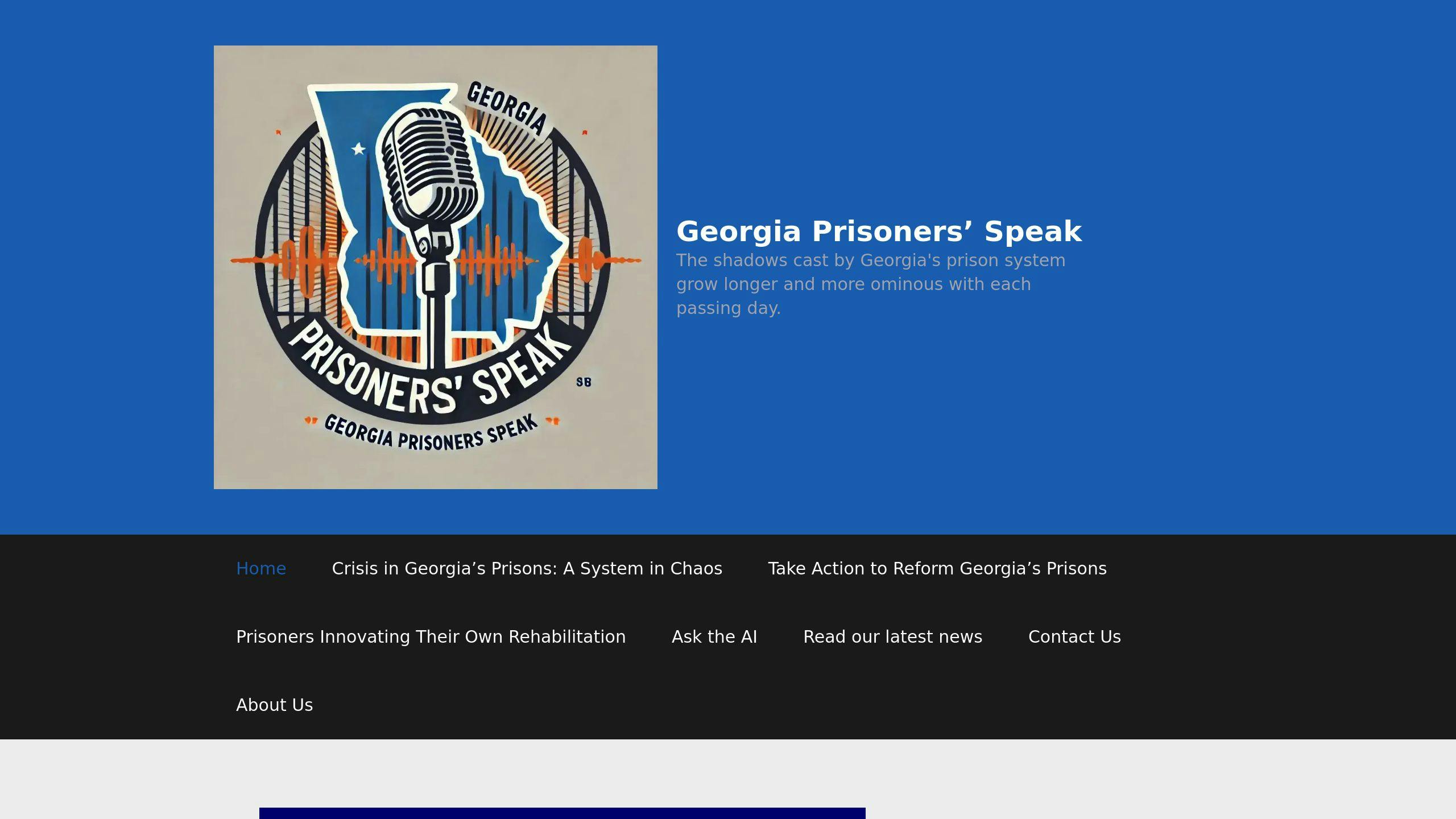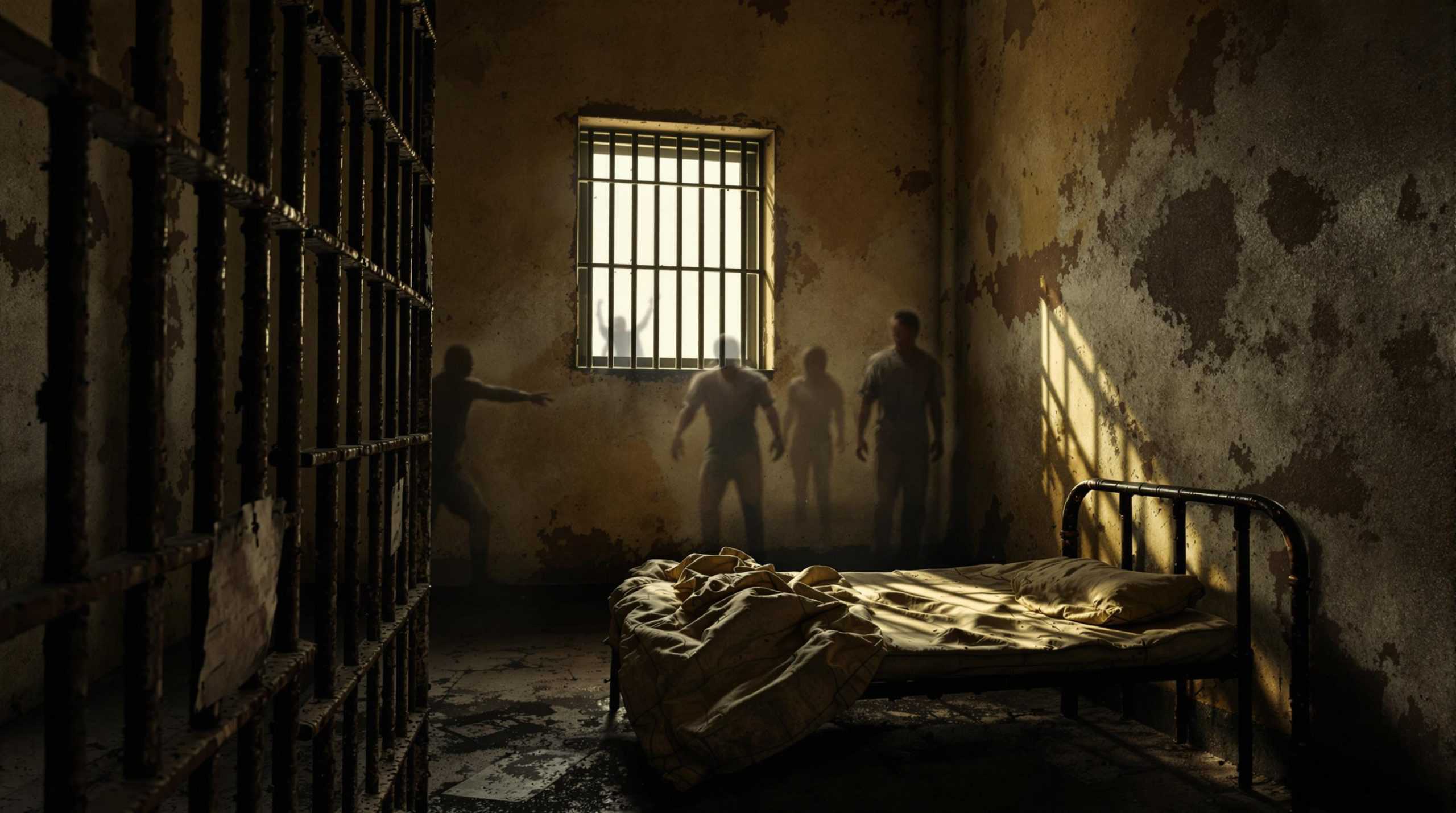Georgia’s prison system is in crisis. Here’s why:
- Staffing shortages: Officer vacancy rates average 49.3%, with some prisons exceeding 70%. This has led to unsafe conditions and rampant corruption.
- Corruption and contraband: Since 2018, 428 corrections employees have been arrested, with 80% tied to contraband smuggling. Even high-ranking officials, like a former warden, have been implicated.
- Gang control: Gangs exploit weak oversight, controlling daily prison life and orchestrating crimes like shootings and arson from behind bars.
- Dangerous conditions: From 2018 to 2023, 142 homicides were reported in Georgia prisons, and deaths increased by nearly 96% in just three years.
The result? Prisons are unsafe for inmates, staff, and the public. Fixing the system requires better staffing, stricter oversight, and stronger security measures.
Keep reading to learn about the root causes, the impact on society, and proposed reforms to address the corruption and improve safety.
DOJ Finds ‘Unconstitutional Risk of Harm’ Inside Georgia Prisons
Root Causes of Corruption in Georgia Prisons
Staff Misconduct and Poor Management
Corruption in Georgia’s prisons stems largely from staff shortages and poor oversight. With limited training and support, many staff members fall prey to criminal influences. Criminal organizations often target young, inexperienced personnel – especially women under 30 – to assist with illegal activities inside the facilities [5].
Leadership failures further compound the problem. For instance, in the Brian Adams case, administrative corruption directly enabled contraband smuggling [6]. This erosion of staff integrity has allowed gangs to take control of prison operations.
Gang Control Inside Prisons
As staff struggle to maintain order, gangs have stepped in to fill the void. Investigations like Operation Ghost Guard uncovered guards accepting bribes ranging from $500 to $1,000 to smuggle phones, fostering close ties between staff and gang members [3][7]. These gangs now exert control over essential prison functions, including access to supplies, housing assignments, and the flow of contraband.
The consequences extend beyond prison walls. For example, Thomas White used a smuggled phone to coordinate a drive-by shooting, underscoring the broader public safety risks tied to gang influence [1][3].
Weak Oversight and Lack of Accountability
Systemic failures in oversight have allowed both staff misconduct and gang dominance to thrive. Assistant Attorney General Kristen Clarke described the conditions in Georgia’s prisons as "horrific and inhumane", pointing to the state’s inability to ensure basic safety for inmates [2].
Over a six-year span, GDC prisons reported 142 homicides, while deaths surged nearly 96% in just three years. At U.S. Penitentiary Atlanta alone, 12 inmate suicides occurred between 2012 and 2020 [4].
"The evidence… reveals stunning long-term failures of federal prison administration that likely contributed to loss of life; jeopardized the health and safety of inmates and staff; and undermined public safety and civil rights in the State of Georgia and the Southeast Region of the United States." – Sen. Jon Ossoff, Senate Homeland Security and Governmental Affairs Committee [4]
These oversight lapses not only fuel corruption but also endanger inmates and the wider community.
sbb-itb-7858f51
Impact of Corruption on Inmates and Society
Unsafe Conditions for Prisoners
Corruption in Georgia’s prisons has created dangerous environments for inmates. With correctional officer vacancies exceeding 70% in some facilities, proper safety measures and supervision are nearly impossible. This lack of oversight has allowed gangs to take control of essential daily functions like access to showers, meals, and even bed assignments.
From 2018 to 2023, 142 homicides were reported in Georgia prisons, with the death rate climbing by nearly 96% in just three years. During this period, 10 facilities reported officer vacancy rates above 70% [1]. LGBTQ inmates are particularly vulnerable, facing heightened risks of violence and exploitation [2].
| Prison Safety Crisis Indicators (2018-2023) | |
|---|---|
| Total Reported Homicides | 142 |
| Death Rate Increase (Last 3 Years) | 95.8% |
| Prisons with CO Vacancy Rates >60% | 18 |
| Prisons with CO Vacancy Rates >70% | 10 |
At U.S. Penitentiary Atlanta, a lack of proper oversight contributed to 12 inmate suicides between 2012 and 2020 [4]. Poor maintenance and lax security checks have also allowed contraband to flow freely, putting inmates at even greater risk.
These internal issues don’t just harm those behind bars – they create ripple effects that extend into society.
Risks to Public Safety
The corruption in Georgia’s prisons isn’t confined to the facilities – it spills into communities. Since 2018, 428 Department of Corrections employees have been arrested for criminal activities, with 80% of those arrests tied to contraband smuggling [5]. These compromised staff members help criminal networks operate from within the prison system.
Through corrupt staff, organized crime groups smuggle contraband and orchestrate serious crimes, including kidnappings and murders [3]. A federal indictment involving 23 individuals, including several inmates, highlights how deeply corruption enables gang activities both inside and outside the prisons [1].
This unchecked corruption has created a dangerous cycle. Criminal networks exploit the system’s weaknesses to grow their influence, putting both inmate safety and public security at risk. Even high-ranking officials, like former Warden Brian Adams – now facing RICO charges – have been implicated, showing just how pervasive the problem is [6].
Breaking this cycle is essential to protect both those inside the prison system and the broader public. Addressing these deep-rooted issues is the only way forward.
Efforts to Address Corruption and Reform Prisons
Role of Georgia Prisoners’ Speak (GPS)

Georgia Prisoners’ Speak (GPS) plays a key role in amplifying the voices of inmates and engaging the public. By providing detailed reports and advocacy tools, the organization pushes for much-needed reform. Their efforts to increase transparency help raise public awareness and create pressure for change. These grassroots campaigns work alongside legal and systemic changes aimed at reducing corruption.
Proposed Reforms to Fix the System
Georgia’s prison system faces critical challenges, including staff shortages, weak oversight, and security lapses. Addressing these issues requires targeted reforms.
Here are three key areas of focus:
| Reform Area | Proposed Solutions | Expected Impact |
|---|---|---|
| Staff Management | Improved training, higher pay, stricter hiring | Decrease misconduct, boost retention |
| Oversight Systems | Independent audits, whistleblower protections | Increase accountability, reduce corruption |
| Security Measures | Better contraband detection, gang intervention | Lower violence, curb illegal activity |
While these measures tackle the structural problems, legal actions remain essential to uproot deeply embedded corruption.
Legal Actions and Federal Involvement
Federal investigations have been instrumental in exposing corruption within Georgia’s prison system. The Justice Department’s civil rights investigation has shone a spotlight on systemic failures, driving momentum for reform. One notable case involved the contraband scheme at Smith State Prison, which led to multiple arrests, including that of former Warden Brian Adams [5][6].
Next Steps for a Fairer Prison System
Immediate Steps to Improve Conditions
Fixing staffing shortages by offering better pay and improving working conditions is key to restoring order in prisons. Security must also be tightened. Cases like the "Yves Saint Laurent Squad" show how corruption allows contraband smuggling to flourish. Stricter screenings and upgraded technology can help reduce these breaches.
While these steps address urgent problems, deeper changes are needed for long-term reform.
Long-Term Changes for Lasting Reform
To create meaningful change, the system’s infrastructure and culture need a complete overhaul. Here are some key areas to focus on:
| Reform Area | Current Challenge | Proposed Solution |
|---|---|---|
| Staff Development | 428 employee arrests since 2018 | Better vetting, training, and professional growth |
| Infrastructure | Aging facilities, poor surveillance | Modernized buildings and advanced security tools |
| Oversight | Limited accountability | Independent monitoring and transparent reporting |
These changes aim to reduce corruption and create a more professional corrections system.
How Readers Can Help
Public engagement is crucial for driving change. Here’s how you can contribute:
- Support advocacy groups: Organizations like GPS (gps.press) work toward reform.
- Reach out to lawmakers: Contact your state representatives to push for prison reform legislation.
- Share information: Report documented corruption cases to journalists and advocacy groups.
The Justice Department has warned Georgia to act quickly or face legal action [2]. Public pressure and backing reform initiatives can help ensure these changes happen.
